Everything you need to know about Remote Proctoring
Learn what remote proctoring is, how it works, what benefits remote examinations provide, and the future of online exams with remote proctoring.


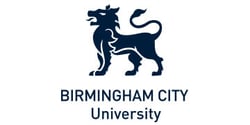
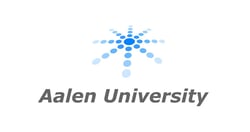

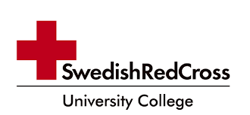


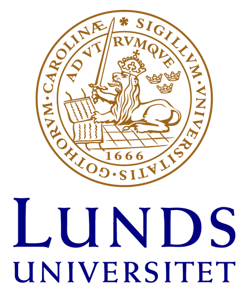

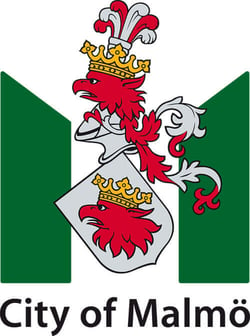


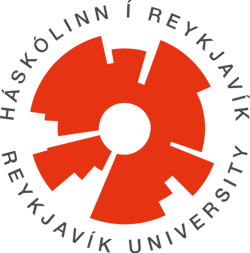
Explore the Digiexam exam platform
Enterprise security
Flexibility
What is remote proctoring?
Understanding the meaning of remotely proctored exams:
Remote proctoring allows students to take exams or assessments remotely while being monitored online. It ensures academic integrity by using technology to observe students during the exam to prevent cheating.
Through webcams, microphones, and screen-sharing, institutions can capture audiovisual data and monitor test-takers in real-time It can detect suspicious behavior such as looking away from the screen, talking to someone, or accessing unauthorized resources. Remote proctoring systems benefit from artificial intelligence to analyze students' movements and flag potential irregularities.
How does online remote proctoring work?
4 steps involved in remote proctoring
Remote Proctoring is a system that follows a simple three-step process to make sure exams are fair and secure for students.
Preparation
Students need to install special software on their devices before the exam. This software helps keep an eye on them during the test. They give permission for the software to access their webcam, microphone, and screen, so it can monitor what they do.
Real-time monitoring
Once the exam starts, the software kicks into gear. It uses the webcam to capture video and the microphone to record audio. This way, it keeps track of everything the student does during the test. This recording of audio, video, or both during the live remote proctoring provides valuable footage for the proctor to review and resolve any uncertainties.
Anomaly detection
The software uses clever algorithms to analyze the data it collects in real time. It looks for any unusual behavior that could be a sign of cheating. For example, if a student keeps looking away from the screen or talks to someone else, the software raises a flag to let the proctor know.
Follow up after the exam
Once the exam has concluded, the educators can look through the footage to identify and flag down any suspicious behavior to identify potential cheaters.
How do remote proctoring services prevent cheating?
7 ways to prevent cheating in remote online proctored exams
Online remote proctoring services offer various methods to detect and prevent cheating during an online exam including:
- Webcam monitoring: The exam taker's webcam is monitored in real-time, either manually by a proctor or by an AI, to detect any suspicious activity. This can include detecting the use of prohibited resources, such as textbooks or notes, and detecting that the exam taker has left the camera view or behaving suspiciously, such as looking away from the screen for an extended period of time.
- Screen monitoring: The exam taker's computer screen is also monitored during the exam to detect any suspicious activity. This includes detecting the use of prohibited resources.
- Facial recognition: Certain remote proctoring solutions have features that use facial recognition technology to ensure that the person taking the exam is the person who registered for the exam.
- Audio detection: Background noise or multiple voices are also monitored to prevent anyone in the room from helping the exam taker.
- Mouse movement analysis: Through this system, the exam taker's mouse movements are tracked to detect patterns that may indicate cheating.
- Recording: The exam session is often recorded, which can be reviewed later by the proctor to ensure that no cheating occurred.
- Additional security: Various security measures are used, such as encryption and authentication, to ensure that the exam taker's data is protected from unauthorized access.
What are the advantages of a remote online proctored exam?
4 advantages of using remotely proctored exams
Flexibility
An online remote proctored exam allows anyone, anywhere to participate in the exam, while still ensuring academic integrity. The instructor can perform their duties as a supervisor wherever they like, or won’t have to be present at all with automated remote proctoring. An online proctored test eliminates the need for any physical location, saving both time and money for the students such as travel costs, investments, and arrangement of the physical test centers for the institution.
Fair testing environment
A remote proctored exam provides a fair testing environment for all students. By preventing and deterring academic dishonesty (cheating), the students will know that the value of their education will remain strong while the institution can protect its reputation.
Increased security
Using AI and automation and online “in-person” proctoring, or a combination of both, remote proctoring prevents and deters cheating, ensuring the security and integrity of the exam. Earlier worries about academic dishonesty while performing an exam online are no longer a problem. Both high-stakes and low-stakes testing can now be done with the same safety as on campus.
Cost-efficient & convenient
Remote exams result in significantly lower administrative costs for institutions as the requirement of physical examination centers and proctors is eliminated. The remote setting also benefits the test-takers, who can write the test from wherever they want and won’t have to spend anything to get to and for the examination location.
The future of remote proctoring technology
What does the future of remote proctoring look like?
The future of remote proctoring holds great potential for further advancements and improvements in ensuring exam integrity. Here are a few key aspects that depict how the future of proctoring systems may look:
- Better technology: Proctoring tools will become even more advanced. They'll use smarter algorithms and better artificial intelligence to detect cheating more accurately and ensure proper monitoring.
- User-friendly experience: As the technology for remote proctoring gets better, there will be fewer technical issues, simpler setup processes, and more user-friendly interfaces to reduce stress during exams for students and educators alike..
- Privacy and security: There will be a focus on striking the right balance between exam security and protecting students' privacy. Better privacy controls and data protection measures will be implemented to keep personal information safe.
- Integration with learning systems: Seamless integration with existing learning management systems will make scheduling, delivering, and managing results easier within educational platforms.
Remote proctoring system by Digiexam
ID verification
Automated proctoring
In-person proctoring
Add mobile camera
Open chat
Credibility report
Remote proctored examinations with Digiexam
Conducting up a remote proctored exam
1. Create the exam
- Build the exam in Digiexam by creating one from scratch or choose a previously created one from your library.
- Choose features for the online proctoring according to your needs.
2. Verify students ID and start the exam
- Match high-resolution face photos or an identification card/passport against the student’s profile.
- Lock students’ devices to prevent cheating.
- Make use of automated proctoring and/or in-person proctoring given your institution's preferences.
- Notify, inform, and chat with students during the exam through the open chat.
3. Review exam results
- Review the credibility report.
- Grade per student or per question through automatic and anonymous grading.
- Co-grade with colleagues in one place.
- Publish the results back to your LMS or directly in the Digiexam platform.
FAQ - Remote proctoring
What is remote proctoring?
How does remote proctoring work?
Remote proctoring systems use a combination of technologies such as webcams, screen recording, audio recording, and facial recognition to monitor students taking exams online. Some systems, like Digiexam, may also use AI to detect suspicious behavior and flag any potential cheating.
Is remote proctoring secure?
Remote proctoring systems use a variety of security measures to protect the integrity of the exam and the privacy of the student. These may include encryption, secure data storage, and biometric authentication. However, as with any technology, there is always a risk of hacking or other security breaches.
What equipment do I need to take an exam with remote proctoring?
What our customers say
As the University continues to pursue a remote assessment strategy for all courses, confidence in the systems we use to support exam integrity is vital.

Maggie Gibson Birmingham City University

Digiexam receives a lot of attention in the south of Germany since a lot of people share the belief that it will be the only product that will meet the regulatory and data privacy requirements for future online testing.

Dr. Martin Franzen Aalen University
We have students all over Sweden and abroad and they need to be able to complete their exams regardless of location. Digiexam's proctoring solution has become a key success factor for us at FEI.

Magnus Rolf Företagsekonomiska Institutet
What to consider
Meet the platform
Let us show you how it works.
Read more
Digiexam plans and pricing
Find a pricing plan for you
Read moreEnterprise security
Academic integrity can never be compromised.
Read more